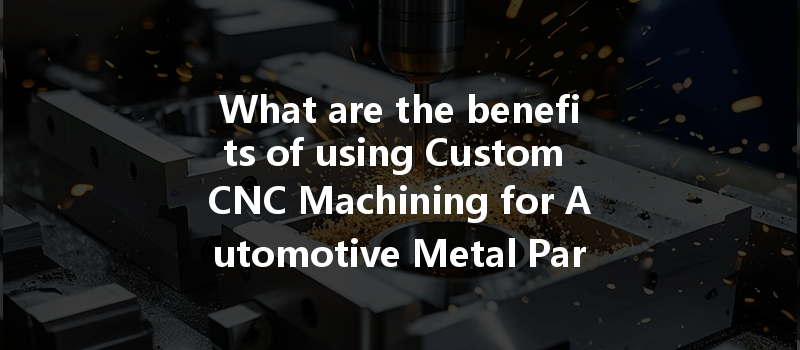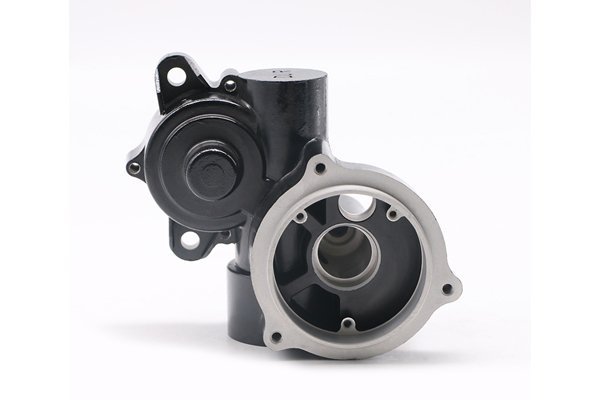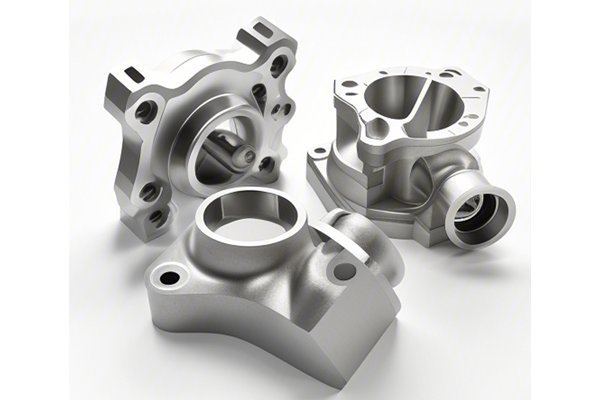Did you know that the global automotive industry is projected to reach a staggering market value of $9 trillion by 2025? As automotive manufacturers strive to meet consumer demands, the need for precision-engineered components has never been more critical. Custom CNC machining for automotive metal parts is a solution that is transforming the landscape of automotive manufacturing. In this blog post, we will delve deep into the intricacies of CNC machining, explore its benefits, discuss key considerations, and provide insights into selecting the right machining solution for your automotive needs.
The Essence of CNC Machining
CNC (Computer Numerical Control) machining is a manufacturing process that transforms raw materials into customized, precision parts using highly sophisticated computer-controlled machines. It leverages advanced technology to automate the machining processes, resulting in improved efficiency, accuracy, and repeatability. The automotive industry is increasingly relying on CNC machining to produce components such as brackets, gears, engine parts, and various other essential elements.
Why Choose Custom CNC Machining for Automotive Metal Parts?
One of the most significant advantages of custom CNC machining is its unparalleled accuracy. Modern CNC machines can operate within tolerances of just a few microns, ensuring that automotive parts fit perfectly into their assemblies. This precision minimizes waste, reduces the need for post-machining adjustments, and optimizes performance.
CNC machining allows manufacturers to create complex geometries and intricate designs that are often impossible to achieve with traditional manufacturing methods. Whether you need a simple bracket or a multifaceted engine component, CNC technology can be tailored to produce various designs, allowing for greater flexibility in the development process.
The automotive industry requires a broad range of metals, such as aluminum, steel, brass, and titanium. Custom CNC machining provides the opportunity to work with multiple materials, allowing manufacturers to choose the best metal for specific applications. Different materials can offer various benefits—like weight savings with aluminum or strength with steel—making it essential to utilize the right material for each component.
In an industry where time-to-market is crucial, rapid prototyping through CNC machining aids in accelerating the design process. Manufacturers can create prototypes swiftly, allowing for real-world testing and modifications before full-scale production, ultimately leading to reduced development time and costs.
Consistency is key in automotive manufacturing. Custom CNC machining provides uniformity in production, ensuring every part produced maintains the same specifications. This repeatability is vital for maintaining quality and performance standards across all vehicles produced by a manufacturer.
While the initial investment in CNC machinery can be significant, the long-term cost savings are considerable. CNC machining reduces waste, minimizes labor costs, and shortens lead times. Furthermore, high-precision parts require fewer adjustments, which leads to lower overall production costs. As a result, manufacturers can achieve greater efficiencies and better profit margins.
Key Considerations for Custom CNC Machining
When opting for custom CNC machining for automotive metal parts, several considerations must be taken into account:
Selecting a qualified and experienced CNC machining provider is crucial. Evaluate potential partners based on their experience in the automotive industry, past projects, and capabilities. Ask for customer references and case studies to ensure the manufacturer can meet your quality and deadline requirements.
Familiarize yourself with the different types of CNC technologies available, such as 3-axis, 4-axis, and 5-axis machining. Each technology offers unique advantages and is suitable for specific applications. Consult with your manufacturer to determine the best fit for your project requirements.
Quality control should be integrated at every stage of the machining process. Implement comprehensive QA measures, including inspections, testing, and certifications (such as ISO compliance), to ensure parts meet the required standards. Establish clear quality expectations with your CNC partner before starting production.

Discuss material options with your manufacturer and consider the specific requirements of your automotive application. Factors such as weight, strength, and machinability should guide your choice of materials. Additionally, be aware that certain metals may require special machining techniques or tools, influencing the overall production process.
Before committing to full-scale production, invest in prototyping and testing. This practice helps validate design choices and highlights any performance issues early in the process, which can save time and money in the long run.
Overcoming Challenges in CNC Machining
While custom CNC machining presents numerous advantages, it is not without challenges. Manufacturers must navigate various obstacles throughout the process:
As automotive designs become more intricate, the challenge to produce these parts accurately increases. Thorough planning and close collaboration with the CNC provider can help address the complexity of design, from initial sketches to final production.
Each metal possesses unique machining characteristics. Some materials may be difficult to machine, leading to longer production times and increased costs. Understanding these limitations and discussions with knowledgeable suppliers can ease this challenge.
Fluctuations in material costs and market demand can impact the overall expenses associated with CNC machining. Manufacturers must maintain flexibility and adapt their strategies to handle these changes without compromising on quality.
Innovations in CNC Machining Technology
Advancements in technology are continually shaping the future of CNC machining in the automotive industry. Some notable innovations include:
Many manufacturers are now integrating robotics into their CNC machining processes. Automation enhances efficiency while reducing human error, leading to more precise and cost-effective production methods.
The combination of additive and subtractive manufacturing processes, known as hybrid manufacturing, is becoming increasingly popular. This technique allows for the creation of complex geometries that traditional machining alone cannot achieve.
The rise of Industry 4.0 is transforming how manufacturers operate. Smart sensors and IoT devices integrated into CNC machines enable real-time data monitoring, improving quality control and equipment maintenance.
The use of cutting-edge software for Computer-Aided Design (CAD) and Computer-Aided Manufacturing (CAM) streamlines the design phase, allowing manufacturers to simulate machining processes and identify potential issues before production.
Custom CNC machining for automotive metal parts presents an invaluable solution for manufacturers seeking precision, efficiency, and versatility. The benefits—including precision, rapid prototyping, and cost-effectiveness—position CNC machining as an essential component of modern automotive production.
As the industry continues to evolve, embracing new technologies and thoughtful considerations will be vital for automotive manufacturers striving to stay competitive. By selecting the right partners and harnessing the power of custom CNC machining, you can improve your operations, enhance product quality, and drive innovation, ultimately playing a critical role in the success of your automotive manufacturing endeavors.
In a world where accuracy and efficiency are paramount, understanding the power and potential of custom CNC machining is essential for any manufacturer looking to thrive in the automotive industry. Embrace innovation, prioritize quality, and adapt to the ever-changing landscape of automotive manufacturing, and you will be well-equipped to meet the challenges ahead.






